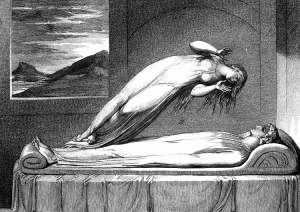Revelation 6:9, Under the altar…souls. In Hebraic biblical thought, the earth is the altar (see The ArtScroll Tehilim/Psalms Commentary on Ps 118:27), and at death, the soul is not immortal, but simply goes into the grave with the body awaiting the resurrection (Ps 49:15; Ezek 18:4).
Below is a brief discussion on the origins of the idea of the immortality of the soul.
The Idea of an Immortal Soul Comes from the Pagans, Not the Bible
In his book, Judaism, by Harvard professor, George Foot Moore, the author asserts that in ancient Israel there was no concept of the afterlife. The abode of the dead was the grave (sheol). The only hope of life after death was expressed in the notion of the resurrection of the righteous sometime in the future. (vol. 2, pp 287–292)
The Greek thinkers postulated the dual nature of man where it was believed the man’s true self was an imperishable soul, which during what we call life is the inmate of the mortal body. At death the soul leaves this tenement, while the body dissolves into its material elements and perishes. The soul then flits away to the realm of spiritual or noumenal existence to which by its essential nature it belongs. The ideas of immortal souls and of the happy lot to which the souls of the good go at death seemed to some Jews to fit in so well with their own religious conceptions as to belong to them (Ibid., pp. 292–293). Continue reading


